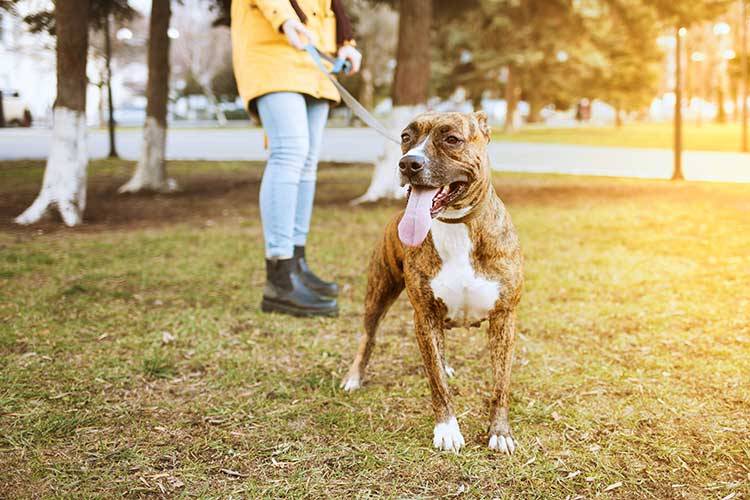Tips for Getting Your Dog Back on Track
A hot topic among dog trainers and owners lately is when positive reinforcement doesn’t work. Many dog owners are hesitant to use positive reinforcement training because they assume their dogs won’t respond unless they have a treat in their hand, which is a valid concern.
On the other side, dog trainers have a tendency to panic when positive reinforcement doesn’t work, while teaching a behavior, and may take a step back to traditional dog training methods (i.e. force, push, pull, correct, etc.). As with any dog training technique, it’s important to know how to push through challenges.
Dog Training Scenarios
Dog is Overly Excited Around Treats
As a professional dog trainer, I adore dogs that lose their minds around high value treats! This means they’re excited and interested in the training process, but it’s important to prioritize their training skills. Before teaching “loose leash walking” or even “sit,” start rewarding easily excited dogs every time all four feet are on the floor. This teaches them to stand instead of jump to grab the treats.
Next, teach the “leave it” behavior. This behavior teaches your dog self-control around treats since he must ignore the treat to earn it. “Touch” is also an excellent behavior to teach excited dogs. Once a dog understands self-control, it’s time to start teaching other behaviors, such as “sit,” “down” and “loose leash walking.”
Dog Gives Up
When an owner is teaching his dog a difficult skill, such as “loose leash walking” or “down” behavior, many dogs will become frustrated and leave the training area. These dogs are not stubborn; they are confused. When this happens, it’s important to increase your rate of reinforcement. This means rewarding your dog for every successful attempt toward the behavior. As a general rule, reward your dog every two to three seconds. Once he understands where you’re going with the exercise, he will begin offering behaviors and remain engaged in the dog training process.
Think about it this way: You would quit a game that’s too difficult and confusing, especially if no directions were included. Break difficult behaviors down into tiny micro-movements, and then add them together for a finished behavior. Oh, and keep dog training sessions short (one to two minutes long). Sometimes, dogs need a break and will leave during long sessions.
RELATED: Is Your Dog’s Behavior Improving?
Dog Ignores the Treat
Dogs ignore food treats for a couple of reasons. One, the treat is not high value enough. Dog training treats are your dog’s currency, so pay well with bits of cheese, hot dogs, deli meat or blue cheese crumbles. Earning high value treats is equivalent to earning a $100 bill. Dry dog treats, bones or kibble are equivalent to minimum wage. Trust me, high value treats will jump-start a new behavior quickly. Always pay your dog well for a great job.
The other reason dogs ignore treats is due to stress. It’s hard to concentrate when you’re worried about a new environment or distractions. Plus, when you’re stressed, you’re not hungry (at least in the moment). When dogs refuse treats, it’s best to move them away from what is worrying them.
Dog Won’t Perform Behavior Unless Treats are Present
Oh, this is a huge concern for dog owners and trainers alike. Using treats during dog training is not bribery; treats are used to reward good choices. Once a dog will perform a behavior on cue 90% of the time, it’s time to start rewarding every other performance. After a couple of weeks, start rewarding every third time and so forth.
Never completely throw out treats. Instead, reward really good responses, such as responding to “come when called” across a park, ignoring a running squirrel or choosing to “heel” around neighborhood distractions. In dog training jargon, this is called variable schedule of reinforcement, and it’s powerful. Don’t believe me? Visit a casino. 🙂 If a gambler never receives a payout, he will quit the game. However, he keeps pulling that lever because he knows a payout will happen eventually.
Dog owners are the teachers and their dogs are students. When in doubt, stop the dog training session and rethink the situation.







